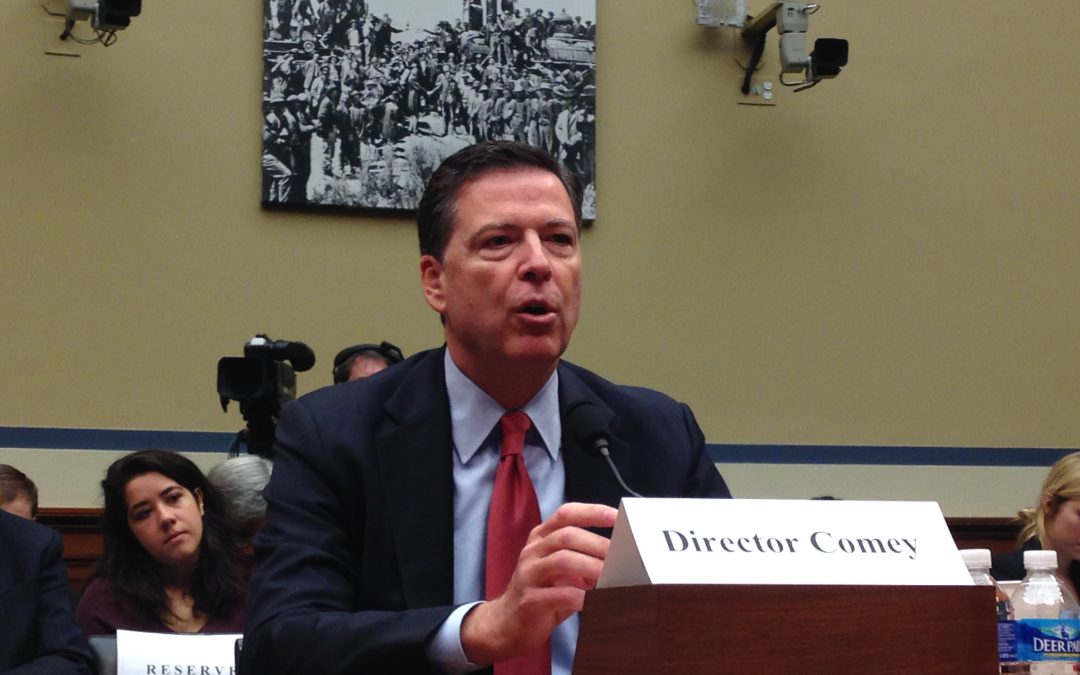WASHINGTON. — Republicans wasted no time Wednesday in turning FBI Director James Comey’s appearance before the House Judiciary Committee into another review of former Secretary of State Hillary Clinton’s use of a private email server.
The FBI closed the yearlong investigation into Clinton’s handling of classified information on her private email server in July, deciding that the presidential nominee would not be prosecuted.
The “destruction of emails” by the Clinton team and word that President Barack Obama used a pseudonym in emails with Clinton highlight the problem of high government officials using a private “unsecured network,” said House Judiciary Committee Chairman Bob Goodlatte, R-Va.
Operating that way can put “national secrets in harm’s way,” he said.
Committee members questioned why Comey made an immunity deal with Clinton’s top State Department aide, Cheryl Mills. Comey said that Mills was granted immunity in return for the information that was contained on her laptop.
Rep. Louie Gohmert, R-Texas., called it “shocking” that Comey would make an immunity agreement with a key witness before seeing the contents of her laptop.
“You cleaned the slate before you even knew,” Gohmert said.
The GOP lawmakers, the majority in the House, also asked why Mills, a witness herself, was one of the lawyers present in the room during Clinton’s interview with the FBI director.
Comey said the FBI doesn’t have the power to stop someone like Mills from being in the room with a witness. The agency’s main objectives were to get the information on the laptop and obtain the work-related emails. Comey said that could not be accomplished without giving the guarantees.
Clinton’s interview with the FBI director took place on July 2. Three days later, Comey announced that the case against Clinton was “unprosecutable” and recommended the Justice Department not file charges. Considering the timing of this statement, lawmakers questioned whether Clinton was favored because of her political status.
“Why should there be privileges for the politically well-connected, particularly if your name is Clinton?” Goodlatte asked.
“If I got some classified information…and used an unsecure server to send it to someone, I would be in big trouble. And I should be in big trouble,” Rep. Jim Sensenbrenner, R-Wis., said. “There seems to be different strokes on different folks on this.”
Comey denied application of any “double standard,” saying that FBI employees using an unclassified email system for business purposes would be in “huge trouble” but would not be criminally prosecuted.
“You can call us wrong, you can call me a fool, but you can’t call us weasels,” said an emotional Comey. “You can disagree with this. There is just not a fair basis for saying we did it in any way that wasn’t honest and independent.”
Panelists also asked about the FBI’s questioning of Paul Combetta, the technology specialist from Platte River Network who deleted Clinton’s email archives. Combetta was also granted immunity in the investigation. Comey said Combetta had acted on his own — “with no instruction” — when he destroyed the emails.
Comey said the specialist had been told to delete archived emails in 2014 and “screwed up and didn’t do it.” When Congress subpoenaed the emails, Comey said the technician remembered his original instructions and deleted them out of panic.
“That was his oh [expletive] moment, and that [story] was credible,” Comey said.
Republican lawmakers also brought up a Reddit post by Combetta asking how to “strip out” a “VIP” email address from archived emails. The FBI concluded that this attempt to delete Clinton’s email address in the files was not an illegal coverup, Comey said.
While FBI reports showed that there were thousands of emails deleted after news about Clinton’s use of a private server went public, there was no evidence that Clinton was guided by “criminal intent,” Comey said.
In August, Goodlatte and Rep. Jason Chaffetz, R-Utah, wrote to the Justice Department demanding an investigation of whether Clinton perjured herself when testifying last October before the House’s special Benghazi investigating committee. Comey said he had the request, but he wouldn’t not comment on whether an investigation on the matter was under way.
However, Comey said he hasn’t seen any reason to reopen the probe into Clinton’s private email server. “Whether you agree or disagree with the results, this was done in the way we wanted it to be done,” he said.


